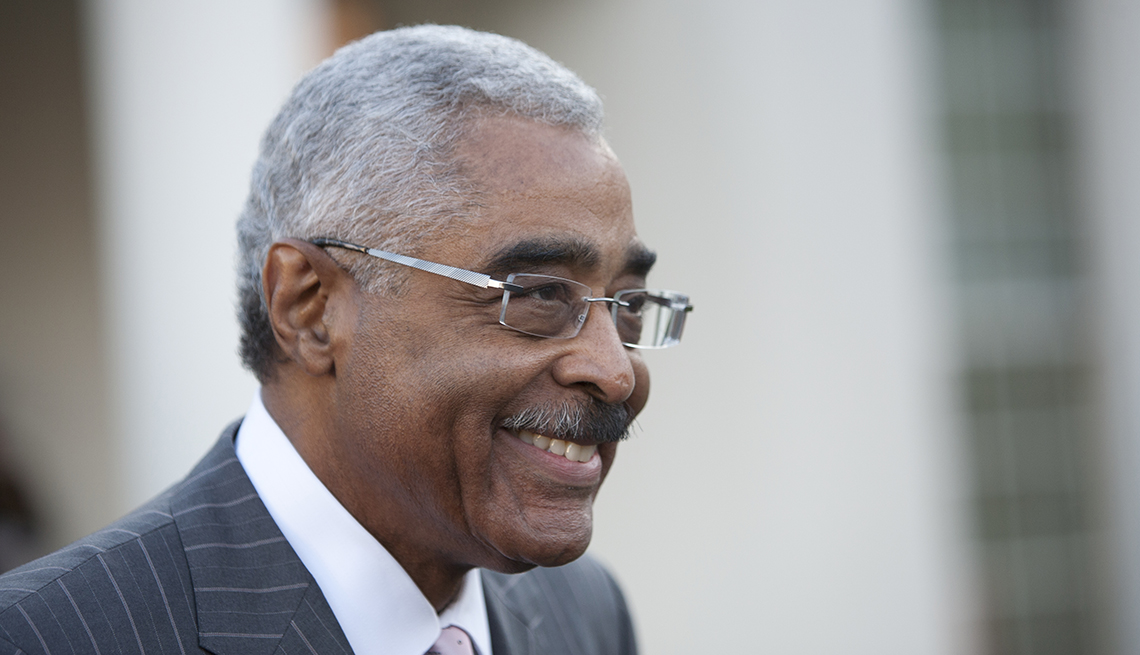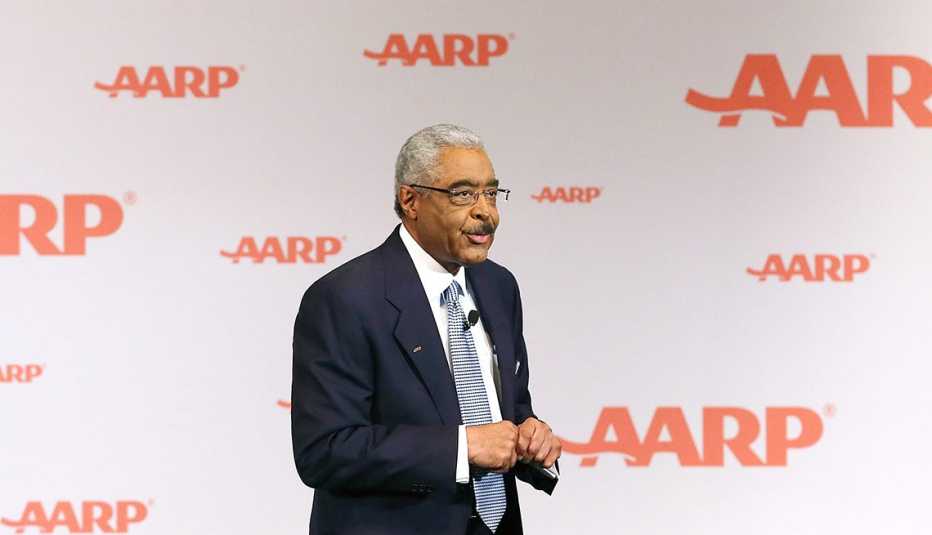AARP Hearing Center
AARP
Addison Barry Rand, one of the first African American CEOs of a Fortune 500 company, former CEO of AARP, former chair of the Howard University Board of Trustees, and a champion of social change and inclusion, passed away on Wednesday, Nov. 7, at the age of 74. According to his wife, Donna, he died following a long illness.
Born Nov. 5, 1944, and raised in Washington, D.C., he was the only child of Addison Penrod Rand and Helen Matthews Rand. His father, a postal clerk, and his mother, an elementary school principal, instilled in him at a young age the importance of getting a good education and leading a professional life. He graduated from Archbishop Carroll High School, in Washington, D.C., where he excelled in academics, was voted class president, and served as captain of the baseball, basketball and football teams. He went on to receive a B.S. in marketing from American University (1968), and an M.B.A. (1972) and an M.A. (1973) in management science, both from Stanford University, where he was also a Sloan Fellow. He has received honorary doctorate degrees from six universities.
Rand began his career at Xerox as a sales representative in 1968. From there, he advanced to several senior positions within the company, completing an outstanding 30-year career as executive vice president world wide operations. Under his leadership, Xerox became the most diverse company in the Fortune 500 while also being named America’s best sales force and top training organization in America. And, he was the driving force behind Xerox receiving the prestigious Malcolm Baldrige National Quality Award in 1989 and in 1997.
In 1999, Rand became chairman and chief executive officer of Avis Group Holdings Inc. He transformed Avis from the second-largest car rental company to the world’s leading service and information provider of comprehensive automotive transportation and vehicle management solutions, dramatically increasing the company’s value. His successful transformation of the company led to it being acquired by Cendant Corporation in 2001.
In 2003, while serving on the board of Equitant Ltd., an Ireland-based provider of outsourced management services, Rand was asked to become the company’s chairman and chief executive officer. Over the next two years, he expanded Equitant into a global firm and negotiated its successful acquisition by IBM in 2005.
Rand often told the story of how, as a young man growing up in a segregated Washington, his parents and his grandfather, a retired minister, would drill into him that he had an obligation to give back and help others who were not as fortunate. They would continually ask him, “What is your contribution going to be?”
So, it is no surprise that throughout his life, Rand was recognized as a leader in social change and inclusion, and as a powerful advocate for civil rights in corporate America and social justice for all. As he rose through the ranks during his 31 years at Xerox, he worked diligently to recruit more minorities and women into the company and help them rise to a position of responsibility, where their voices could change policies and help to eliminate those that slow inclusion. As these efforts gained recognition throughout corporate America, he was asked to serve on a committee that would visit other companies explaining how inclusion was possible and beneficial, and sharing best practices. The committee eventually became the Executive Leadership Council, the nation’s preeminent organization that recognizes the strengths, success, contributions and impact of African American corporate business leaders.
In 2009, Rand came out of retirement to lead AARP, the nation’s largest nonprofit, nonpartisan organization dedicated to social change and helping people age 50 and over to improve the quality of their lives. He brought vast leadership and management experience in transforming organizations and expertise and skills in technology, customer relations, marketing and managing people to bear on the opportunities and challenges facing AARP and its 38 million members.




































































